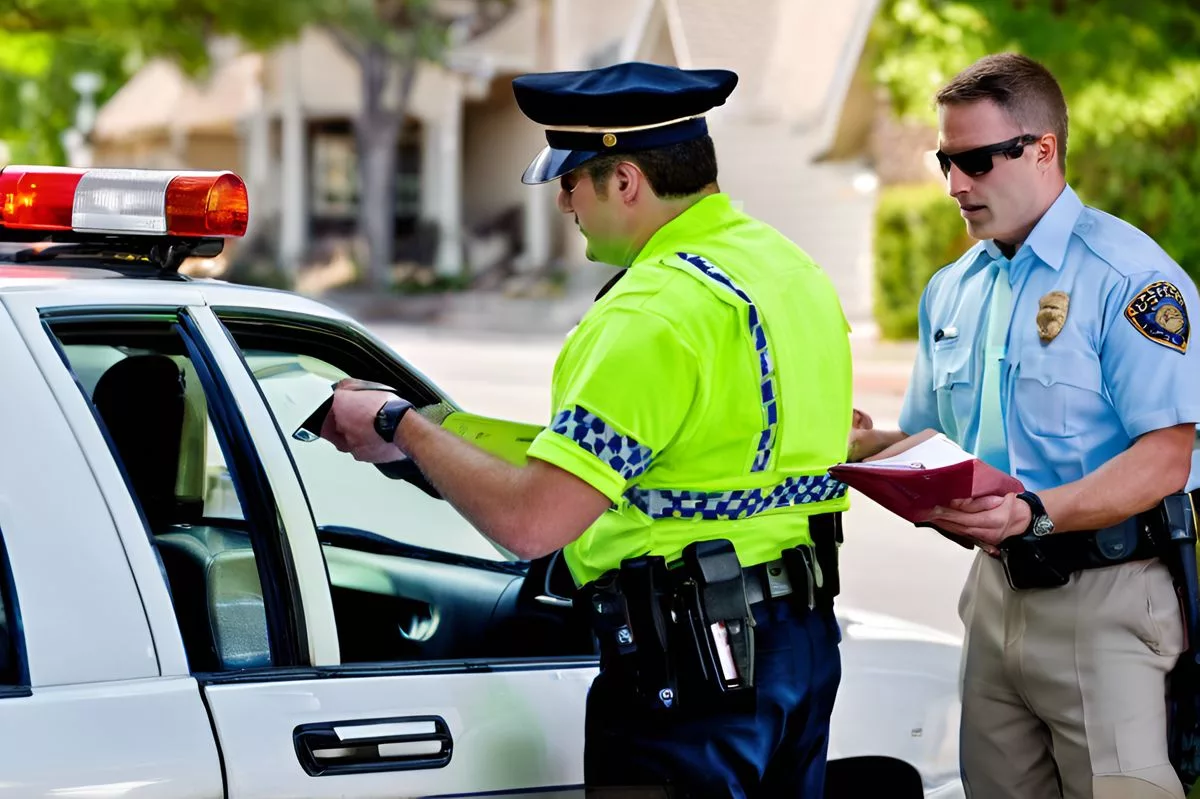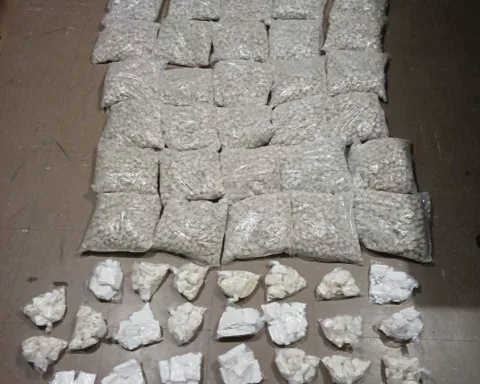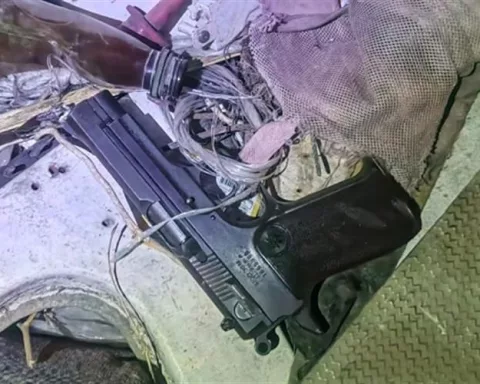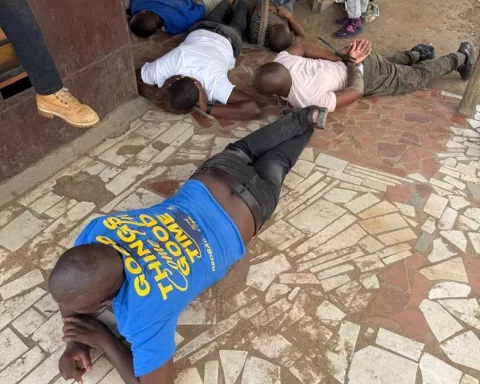Traffic officers in Cape Town flagged down a taxi driver who was over the legal limit for alcohol consumption on a Blue Monday. This highlights the ongoing struggle for public safety and order, as well as the delicate balance between safety regulations and personal accountability. The incident serves as a warning of the potential disaster that drunk driving can trigger, especially involving professional drivers entrusted with passenger safety. Cape Town’s law enforcement faces numerous challenges with 284 arrests made in a week and 65,708 fines issued for various offenses.
Blue Monday in Cape Town saw traffic officers flag down a taxi driver who was over the legal limit for alcohol consumption. This serves as a warning of the potential disaster that drunk driving can trigger, especially involving professional drivers entrusted with passenger safety. In the wider context, Cape Town’s law enforcement faces numerous challenges with 284 arrests made in a week and 65,708 fines issued for various offenses. The incident highlights the delicate balance between safety regulations and personal accountability in the ongoing struggle for public safety and order.
Section 1: The Urban Matrix and a Standout Character
The city is a vibrant tapestry of human existence with an array of actions, preferences, and aspirations. Among these diverse city-dwellers, the taxi driver emerges as a key figure, silently and deftly navigating the city’s concrete labyrinth every day. However, even these commuting champions make errors that provide insights into the intricate weave of urban living and the delicate balance between personal liberty and public safety.
One such instance occurred on a seemingly typical Monday in Cape Town, where the azure beauty of the South African coastline ironically infused the day with shades of blue. On this day, traffic officers at the buzzing intersection of Hout Bay and Camps Bay flagged down a taxi, unaware of the sobering lesson it would impart about the imperative to regulate alcohol consumption among professional drivers.
The driver, a 29-year-old man, had an alcohol level exceeding the legal limit of 0.10mg per 1000ml breath by 0.03 grams. While it may appear trivial, this occurrence serves as a potent warning of the potential disaster that drunk driving can trigger, particularly involving professional drivers entrusted with passenger safety.
Section 2: The Echoing Message and the Wider Context
The incident echoed the sentiments of Alderman JP Smith, the Mayoral Committee Member for Safety and Security. He emphasized the stringent standards to which professional drivers, like our taxi driver, must adhere. The concept of conscientious choices extends beyond individual safety, encompassing passenger welfare and, by extension, public well-being, reminding us that a single misstep can have deep and far-reaching repercussions.
A broader view of the situation reveals that this taxi driver’s case is a drop in the sea of a distressing 284 arrests made in a week by Cape Town’s enforcement bodies. With 65,708 fines issued for diverse offenses, the city’s law enforcement challenges are glaring.
Traffic officers demonstrated commendable vigilance, documenting a shocking 58,082 violations and making 36 arrests. This includes 28 for drunk driving and eight for reckless and negligent driving, alongside the seizure of an astonishing 148 vehicles and the execution of 1,923 arrest warrants.
Section 3: Other Arrests and Enforcement Actions
Among the detainees was a notorious individual caught at a vehicle checkpoint in the city’s central business district. He had a record of 63 unresolved warrants worth R65,500, and his fate lay in the hands of the Blue Downs Magistrate’s Court, reinforcing the relentless pursuit of justice.
The Metro Police and Law Enforcement officers were equally productive, with 61 and 187 arrests respectively, and a combined issuance of 7,626 fines and notices. Their efforts reflect the ceaseless endeavor of law enforcement bodies to enforce public safety.
Section 4: The Emergency Response and Broader Implications
Cape Town’s Public Emergency Communication Centre, the hub of its emergency response network, logged a staggering 1,891 incidents, marking a 24% increase from the previous week. The incident list included 822 medical complaints, 78 fires, 187 assault cases – a drastic rise from the previous week’s 95, 48 domestic violence cases, 68 road accidents, and 272 noise complaints.
The Blue Monday incident encapsulates broader societal concerns regarding public safety and order, representing the perpetual tug-of-war between individual rights and collective security. Despite these challenges, the city’s law enforcement agencies continue their work undeterred, symbolizing their commitment and resilience.
The narrative of the apprehended taxi driver and the resulting law enforcement actions underline the high stakes involved. It brings to light the delicate balance between safety regulations and personal accountability. Moreover, it provides a sobering perspective on the city’s ongoing struggle with public safety, order, and the relentless battle against drunk driving. Within this intricate narrative, the tale of the taxi driver serves as a stark illustration of an individual’s role in the larger societal mosaic.
1. What happened on Blue Monday in Cape Town?
Traffic officers in Cape Town flagged down a taxi driver who was over the legal limit for alcohol consumption on Blue Monday.
2. What does the incident of the taxi driver highlight?
The incident serves as a warning of the potential disaster that drunk driving can trigger, especially involving professional drivers entrusted with passenger safety. Cape Town’s law enforcement faces numerous challenges with 284 arrests made in a week and 65,708 fines issued for various offenses. The incident highlights the delicate balance between safety regulations and personal accountability in the ongoing struggle for public safety and order.
3. How many arrests were made by Cape Town’s enforcement bodies in a week?
284 arrests were made by Cape Town’s enforcement bodies in a week with 65,708 fines issued for diverse offenses.
4. How many violations were documented by traffic officers in a week?
Traffic officers documented a shocking 58,082 violations and made 36 arrests. This includes 28 for drunk driving and eight for reckless and negligent driving, alongside the seizure of an astonishing 148 vehicles and the execution of 1,923 arrest warrants.
5. How many incidents were reported to Cape Town’s Public Emergency Communication Centre on Blue Monday?
Cape Town’s Public Emergency Communication Centre logged a staggering 1,891 incidents on Blue Monday, marking a 24% increase from the previous week.
6. What does the incident of the taxi driver highlight in the broader societal context?
The incident highlights the delicate balance between safety regulations and personal accountability in the ongoing struggle for public safety and order. It provides a sobering perspective on the city’s ongoing struggle with public safety, order, and the relentless battle against drunk driving. Within this intricate narrative, the tale of the taxi driver serves as a stark illustration of an individual’s role in the larger societal mosaic.












